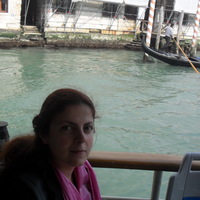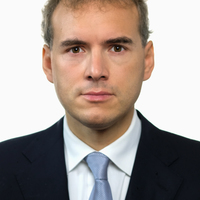
Sandra Rebok
Trained in Heidelberg, Paris and Madrid, Dr. Sandra Rebok has worked for over 16 years at the Spanish National Research Council and was a 3-year Marie Curie Fellow (European Commission) at the Huntington Library. Her research and publication focus on 18th/19th century exploration voyages, intellectual networks and transnational scientific collaboration. She has over twenty years of experience in scholarship on Alexander von Humboldt, much of it focused on his connection to the United States and his ties to Thomas Jefferson in particular. Currently she is working on her new book project that analyzes Jefferson’s early interest for the Spanish and Mexican Southwest. In addition, she over 20 years of experience in public history and different forms of in science communication. She has curated several exhibitions in the field of history of knowledge and has a strong interest in science diplomacy. During the years 2022-2024 she is a Visiting Scholar at the Center for US-Mexican Studies, a think tank located at the University of California San Diego and, additionally, a research associate at the history department at the University of San Diego.
less
Related Authors
Robert Knox
University of Liverpool
David Seamon
Kansas State University
Suzanne Newcombe
The Open University
Barbara Voss
Stanford University
Armando Marques-Guedes
UNL - New University of Lisbon
Michaela Valente
Università degli Studi "La Sapienza" di Roma
Frédérique Langue G.
Centre National de la Recherche Scientifique / French National Centre for Scientific Research
Kati (Katalin) Prajda
University of Vienna
Marco Sgarbi
Università Ca' Foscari Venezia
Johannes Preiser-Kapeller
Austrian Academy of Sciences
InterestsView All (25)










Uploads
Papers by Sandra Rebok
miembro de la aristocracia prusiana, como espíritu
libre que se movía con facilidad por las grandes
capitales europeas, así como por su visión
modernizadora de las ciencias, que intentaba
implantar en ambos lados del Atlántico. Con otras
palabras, como una persona cosmopolita, que se
podía encontrar a gusto en Berlín, París, Londres o
Madrid. También en el ámbito profesional
disfrutaba de contactos en las esferas más altas del
mundo científico, y siempre estaba al tanto de los
últimos avances en los diversos campos de la ciencia
y la tecnología. ¿Cómo, nos podemos preguntar, se acerca una persona de este taladre al mundo rural? ¿Cuáles eran sus observaciones, tanto
sobre los paisajes fuera de los espacios urbanos,
como de las personas que vivían en ellos?
through this perspective, looking at the ties of these regions to other areas of the world. More specifically, it will (1) depict the different facets of his scientific interest in this area, how he was able to collaborate with those that were involved in the exploration of this area; and (2) explore the potential Humboldt saw in this region, both for the development of the United States, once expanded towards the Pacific, as well as for Europe and Asia. In other words, this paper looks both at the crucial role of the Global West already in Humboldt’s period of time, and the position it could potentially reach on the world stage in the future.
and his powerful connections—into a resource for the public good, for the advancement of knowledge, and for the political goals aligned with his values. He developed what we today would call a vision for the “needs of the market,” an ability to look beyond a present situation and to recognize potential future developments. The combination of these
attributes, along with his profound understanding of the connections between science and politics in our world—their causes as well as their consequences—formed the basis on which both his scholarly fame and his diplomatic success were built.
miembro de la aristocracia prusiana, como espíritu
libre que se movía con facilidad por las grandes
capitales europeas, así como por su visión
modernizadora de las ciencias, que intentaba
implantar en ambos lados del Atlántico. Con otras
palabras, como una persona cosmopolita, que se
podía encontrar a gusto en Berlín, París, Londres o
Madrid. También en el ámbito profesional
disfrutaba de contactos en las esferas más altas del
mundo científico, y siempre estaba al tanto de los
últimos avances en los diversos campos de la ciencia
y la tecnología. ¿Cómo, nos podemos preguntar, se acerca una persona de este taladre al mundo rural? ¿Cuáles eran sus observaciones, tanto
sobre los paisajes fuera de los espacios urbanos,
como de las personas que vivían en ellos?
through this perspective, looking at the ties of these regions to other areas of the world. More specifically, it will (1) depict the different facets of his scientific interest in this area, how he was able to collaborate with those that were involved in the exploration of this area; and (2) explore the potential Humboldt saw in this region, both for the development of the United States, once expanded towards the Pacific, as well as for Europe and Asia. In other words, this paper looks both at the crucial role of the Global West already in Humboldt’s period of time, and the position it could potentially reach on the world stage in the future.
and his powerful connections—into a resource for the public good, for the advancement of knowledge, and for the political goals aligned with his values. He developed what we today would call a vision for the “needs of the market,” an ability to look beyond a present situation and to recognize potential future developments. The combination of these
attributes, along with his profound understanding of the connections between science and politics in our world—their causes as well as their consequences—formed the basis on which both his scholarly fame and his diplomatic success were built.
El intercambio intelectual entre uno y otro durante los veintiún años siguientes dio cuenta de los acontecimientos que fueron un punto de inflexión en esa época como, por ejemplo, los movimientos independentistas en AméricaLatinaylaaplicabilidaddelmodelode mocrático en la región, la relación entre Amé rica y Europa, los últimos avances en investiga ción científica y cantidad de proyectos tecno lógicos. Este texto explora el mundo en el cual estos dos personajes de la Ilustración vi vieron y cómo sus vidas de un lado y otro del Atlántico definieron sus convicciones.
The intellectual exchange between the two over the next twenty-one years touched on the pivotal events of those times, such as the independence movement in Latin America and the applicability of the democratic model to that region, the relationship between America and Europe, and the latest developments in scientific research and various technological projects. Humboldt and Jefferson explores the world in which these two Enlightenment figures lived and the ways their lives on opposite sides of the Atlantic defined their respective convictions.